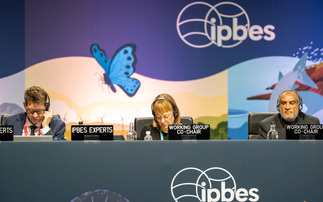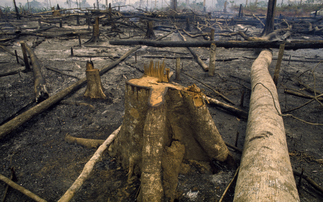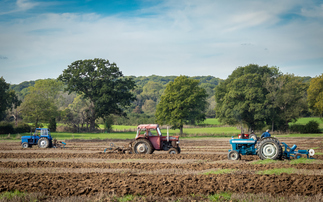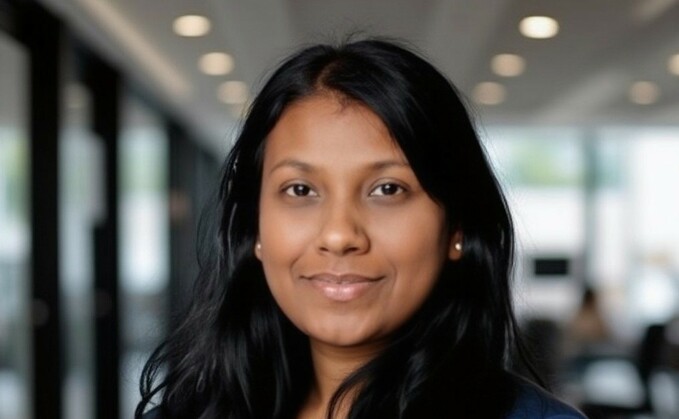
Credit: Aviva
Ahead of the company's sponsorship of the Nature-Based Project of the Year at the UK Green Business Awards, Aviva’s Leah Ramoutar breaks down what the most impactful green schemes have in common
In March 2021, Aviva announced a raft of climate ambitions including becoming net zero by 2040, delivering a 25 per cent cut in carbon intensity by 2025, and reaching net zero operations by 2030.
As the insurance firm's director of environmental sustainability, Leah Ramoutar works to drive systemic change on an institutional, industry wide, national, and international level in pursuit of these goals. She also leads Aviva's Environmental Centre of Excellence, playing an crucial role in delivering its far-reaching climate and environment agenda.
A fellow chartered accountant, Ramoutar worked at Phoenix Group for more than 14 years, and has held roles at Rianta Capital Limited, European Capital Financial Services, KPMG, and Development Finance Limited, Trinidad and Tobago.
BusinessGreen: What was your first role in the green economy and what attracted you to the sector?
Leah Ramoutar: I started my career in developmental finance - focussed on supporting small and medium-sized enterprises across the Caribbean region. Many of the projects I financed were eco-developmental in nature - aimed at fostering sustainable economic growth while addressing pressing environmental and social challenges. This role gave me first hand insight into the pivotal and transformative role finance can play in enabling sustainable development - and shaped my more than 20 year career at the intersection of finance, investment and sustainability.
My passion for sustainability is deeply rooted in my upbringing. I was privileged to be born and raised in biodiverse, twin-island nation, Trinidad & Tobago, which is rich in tropical rainforests, mangroves and coastal woodlands. Growing up surrounded by nature, and with parents who instilled in me a deep respect for the environment, has definitely shaped my commitment.
Aviva is sponsoring the Nature-Based Project of the Year category at this year's UK Green Business Awards. What do you think makes a standout nature-based project?
The most successful nature-based projects are underpinned by climate science. Using data on things such as biodiversity loss and climate projections for example, helps ensure interventions are targeted. It also supports monitoring and evaluation, ensuring that outcomes - like biodiversity gains or carbon capture - are measurable and aligned with broader climate and nature goals.
Nature-based projects should ideally be designed not only for immediate impact but for long-term resilience and adaptability. Those projects that deliver measurable outcomes - such as carbon sequestration, species recovery, or flood mitigation - whilst also being scalable across regions and adaptable to changing environmental conditions are the really powerful ones.
Finally, some of the most impactful projects are those developed in genuine partnership with local communities. By engaging communities from the outset - through consultation, collaboration and shared decision-making - projects are more likely to deliver enduring benefits which are not only environmentally sound but also socially inclusive.
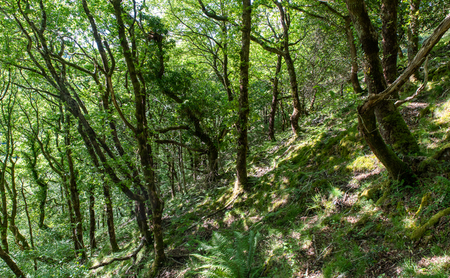
What recent steps has Aviva taken to launch or support nature-based projects?
When we first set our 2040 net zero ambition, we recognised that along with focusing on decarbonisation that we needed to support and scale nature-based solutions. Since then, we have forged partnerships with several leading conservation groups and charities and have to date committed £87m to specific nature-based solutions in the UK, Ireland and Canada. These projects deliver carbon sequestration, biodiversity gain, improved climate resilience and social and community benefits.
One example of this is the £38m partnership with the Wildlife Trusts to restore Britain's lost temperate rainforests in the UK which we believe is one of the most effective nature-based interventions to help remove carbon dioxide from the atmosphere.
Many of these projects also undertake vital work to make similar projects more investible, such as research to support the development of new carbon codes or improve understanding of sequestration rates, which should allow scaling of commercial investment - an example being our in-house asset manager creation of a Carbon Removal Fund for institutional investors. This fund aims to generate and distribute high integrity carbon removal credits and other associated financial returns through exposure to a diversified portfolio of nature-based and engineered carbon removal solutions.
What parts of the green economy are you most excited about?
One of the most exciting frontiers in the green economy is the rapid pace of innovation. From breakthroughs in renewable energy and battery storage to the rise of green hydrogen and carbon capture, we're seeing scalable solutions that can significantly reduce emissions while supporting economic growth. We at Aviva have a critical role to play in accelerating the adoption of these innovations by directing capital towards and underwriting climate solutions and transition-related projects.
I'm also excited by the increasing recognition and momentum around nature as a vital climate ally - and the increasing role that financial institutions like us can play in scaling these solutions. Nature-based solutions such as restoring temperate rainforests, wetlands and coastal ecosystems offer a powerful, cost-effective way to address climate change while delivering a host of other co-benefits: enhancing biodiversity, improving water and air quality, reducing disaster risk and supporting local livelihoods.
What developments do you think are currently under the radar?
For years, climate finance has largely focused on mitigation and reducing emissions. While that remains critical, we're now seeing a growing recognition that adaptation - preparing for the unavoidable impacts of climate change - is equally urgent and increasingly investable.
Adaptation solutions are gaining traction among investors, particularly as climate risks become more visible and financially material. These include investments in flood-resilient infrastructure, drought-resistant agriculture, nature-based coastal protection, and early warning systems for extreme weather events. What's exciting is that these are no longer seen purely as public sector responsibilities - they're being reframed as opportunities for private capital to deliver both impact and returns.
Artificial intelligence (AI) continues to play an increasing role in supporting the transition. However, as AI adoption accelerates, so does its energy footprint. A growing niche is green AI - efforts to reduce the environmental impact of AI models and data centres. This includes optimising algorithms for energy efficiency and using renewable-powered cloud infrastructure for example.
What is the biggest misconception about the green economy?
One of the most persistent misconceptions about the green economy is that it's solely about environmental protection and represents a financial burden. In reality, it's not a trade-off - it's a powerful economic opportunity. The green economy is a catalyst for innovation, competitiveness and job creation across a wide range of sectors, including renewable energy, sustainable finance, clean technology and the circular economy for example.
Nature-based solutions already support over 60 million jobs globally; according to a joint report by the International Labour Organization, the UN Environment Programme and the International Union for Conservation of Nature. With the right investments, this number could increase by up to 32 million additional jobs by 2030.
Similarly, according to the IEA, the global energy sector added nearly 2.5 million jobs in 2023 on the back of rising investment, bringing total employment to over 67 million workers. That number is expected to rise as countries continue accelerating their energy transitions. Far from being a cost, the green economy is a growth engine.
What do you see as the biggest challenges to the net zero transition?
Achieving net zero is a multi-dimensional challenge that requires coordinated action across three key fronts: government, the private sector and individual consumers.
Strong political will is essential. Governments must set a clear direction through robust legislation, regulation and policy frameworks that enable bold, long-term climate action. While many countries have committed to net zero targets, the policies required to deliver on those ambitions often lag behind - or shift with political cycles. This policy volatility creates uncertainty for businesses and investors, particularly in regions where climate action remains politically polarised. The lack of international coordination and disparities in ambition and enforcement between countries risk slowing the global transition.
The private sector plays a critical role in financing the transition, scaling green technologies and transforming supply chains. Financial institutions and businesses must mobilise trillions in investment to decarbonise industries and accelerate innovation. However, while capital exists, deploying it - especially in developing economies - remains a significant hurdle due to perceived risks, regulatory barriers, and insufficient incentives.
Individual choices - how we heat our homes, travel, consume goods, and manage waste - collectively shape demand and influence policy. Shifting these behaviours is essential but challenging. It requires sustained public engagement, education, and incentives to make sustainable choices more accessible and appealing.
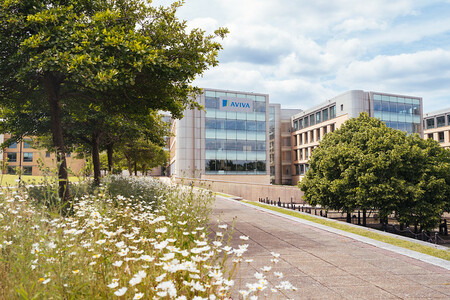
What advice would you give to someone looking to work in the green economy?
What many people don't realise is just how broad and dynamic the sustainability field really is - spanning everything from sustainable finance, wind and solar energy, nature restoration to circular economy models and policy development amongst many others. The best place to start is by identifying the niche that genuinely excites you.
I am a strong believer in the value of education and truly understanding your craft. Whether through online resources, or formal study, building a solid knowledge base is essential. Practical skills like sustainable investing and carbon accounting are increasingly in demand - just as much as other skills such as influencing, stakeholder engagement and business transformation.
Networking is also incredibly powerful. Connect with like-minded professionals, attend sustainability events and stay engaged with the latest developments in the field.
And remember - you don't need to work for a ‘green' company to make a difference. Many traditional roles now incorporate sustainability elements. Often, the easiest way to begin is right where you are - through local volunteering, side projects, or even sharing your ideas online. Most importantly, bring your enthusiasm! Passion is contagious and often the best catalyst for change.
What green initiatives can we expect to see in the coming years?
Nature-based solutions are likely to gain increased traction as very cost-effective ways to address climate change, biodiversity loss and community resilience.
Also, the circular economy is likely to evolve from a niche concept into a mainstream economic model - widening from the consumer goods sector to high-impact sectors such as construction, electronics and the automotive sector for example. With this, financial institutions will start to integrate circularity into sustainability analysis, engagement strategies and impact investing frameworks.
At a more local level, water is quickly becoming one of the most critical resources in the face of climate change. As droughts intensify and freshwater supplies become more unpredictable, financial institutions and insurers may start to recognise the material risks associated with water scarcity - prompting new investment models that support sustainable agriculture and water infrastructure for example.
What can the green economy do to better promote its successes?
Effective communication is key. It starts with telling compelling stories that humanise the impact - sharing real-life examples of individuals and communities thriving through green jobs and clean energy initiatives for example. These narratives help make the transition feel tangible and relatable.
Visual storytelling also plays a powerful role. Using videos, infographics and interactive media can transform complex data into engaging, accessible content that resonates with a wider audience.
Engaging policymakers, businesses, and the public through partnerships with trusted voices - scientists, activists, and even celebrities - can also amplify the message. Leveraging both mainstream and social media ensures these stories are integrated into all the relevant news cycles, keeping the green economy at the forefront of public discourse.
What would your green superpower be?
It would be incredible to have the power to travel back in time to prevent environmental disasters. Imagine being able to stop deforestation before it starts, prevent devastating oil spills, or save animals on the brink of extinction. The ability to intervene at such pivotal moments in history would be an extraordinary force for good - reshaping the past to safeguard the future of our planet.
Leah Ramoutar is director of environmental sustainability at Aviva.
Aviva is sponsor of the Nature-based Project of the Year at the UK Green Business Awards 2025, which will take place on the evening of 11 June at The Brewery in London. You can reserve your place at the awards here.



